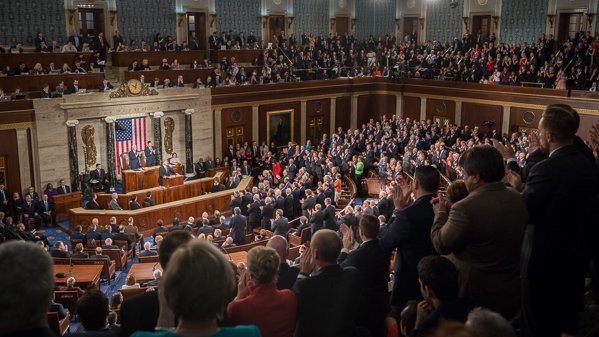If Trump or Congress Decides the Muslim Brotherhood is a Terrorist Organization, Brace for the Blowback

In his inaugural address, President Donald Trump called to “unite the civilized world against radical Islamic terrorism, which we will eradicate completely from the face of the earth.” Members of Congress and Trump's cabinet appointees have made clear that one of the ways they intend to approach this is by expanding the number of groups designated as terrorist organizations. Secretary of State Rex Tillerson, for example, told the Senate Foreign Relations Committee during the opening statement of his confirmation hearing that “the demise of ISIS would also allow us to increase our attention on other agents of radical Islam like al-Qaeda, the Muslim Brotherhood, and certain elements within Iran.” One day before, Sen. Ted Cruz and Rep. Mario Diaz-Balart each introduced legislation in the Senate and House, respectively, calling on the secretary of state to designate the Muslim Brotherhood as a terrorist organization within 60 days or else explain why not. The GOP-led House Judiciary Committee voted in favor of similar legislation, also introduced by Diaz-Balart, last year but it was never signed into law. The Trump administration is also considering bypassing Congress with an executive order that could be signed next week.
Neither an executive order nor congressional legislation would immediately result in a FTO designation. Both would trigger a lengthy review process across a range of government agencies. As William McCants and Benjamin Wittes argued recently for Lawfare, most—if not all—of the Muslim Brotherhood's manifold operations would fail to meet the legal standard for material support for terrorism.
The Muslim Brotherhood's decentralized structure is the most immediate obstacle to its designation. The group’s original branch was founded in Egypt in 1928 by a school teacher named Hassan al-Banna. He called for the peaceful and gradual transformation of society through a return to religious values, with literacy for both men and women a core objective. Much of the group’s early work mirrored the services of foreign Christian missionaries who were proselytizing across the Middle East. Politically, Banna argued that social and political reform must come through working with existing regimes, an idea that later violent extremist groups, including al-Qaeda and the Islamic State, completely reject.
Within a decade, offshoot branches and groups inspired by the Muslim Brotherhood were established in many Arab countries, including Yemen, Jordan, Sudan, Morocco, Palestine, Tunisia, Algeria, Kuwait, Libya, Lebanon, and Syria. Most of these were small and some were not closely connected to the original Egyptian branch as much as inspired by the Muslim Brotherhood’s gradualist approach. Relations between individual groups and their regimes varied considerably. Whereas Brothers in Egypt were persecuted and imprisoned under Gamal Abdel Nasser, for example, Jordan’s Brothers enjoyed close relations with Jordan’s King Abdullah I and his long-reigning grandson, King Hussein.
Today the Muslim Brotherhood is far from a single entity. No umbrella organization wields control over local branches, and groups have taken divergent paths and suffered from internal divisions. In recent years, Jordan’s Muslim Brotherhood has fractured into three groups, with two both claiming the name for themselves. Tunisia’s al-Nahda party was never a formal branch of the Brotherhood but bore many resemblances to other Brotherhood groups. Last year, however, it rebranded itself as a party of “Muslim democrats,” abandoning the “political Islam” term commonly used to describe Muslim Brotherhood groups. This does not mean that these various groups have no contact with each other, but they clearly do not even see themselves as a unified movement. One colleague who attended a gathering of Muslim Brothers from different countries a few years ago reported that they spent the bulk of the time bickering over whose priorities were more important.
Even groups that do identify strongly as branches of the Muslim Brotherhood disagree on a range of issues. Some fully reject partisan politics while others routinely participate in local and national elections. Male and female Muslim Brotherhood members have held dozens of parliamentary seats and cabinet positions and peacefully stepped down when their terms expired or their cabinets were dissolved.
Efforts to lump these diverse Muslim Brotherhood affiliates with violent groups like the Islamic State and al-Qaeda ignore this rich history. They also ignore the fact that many groups have become fragmented in the post-uprising period, some harshly repressed by authoritarian regimes while others continue to function legally. In July 2013 the Egyptian military overthrew the government of Muslim Brotherhood leader Mohammed Morsi—that country’s first-ever democratically elected president—and outlawed the organization as a terrorist group. Saudi Arabia and the United Arab Emirates pronounced similar designations in 2014, and then pressured Qatar over its support for various branches of the organization and its harboring of the prominent Egyptian Brother Yousef al-Qaradawi.
It is true that since the uprisings some splinters of the Muslim Brotherhood have turned to violence, but so have many liberal and progressive movements resisting the reestablishment of repressive autocracies in their countries. The context matters tremendously, as does the sharp escalation in regime use of violence against all manner of opposition.
Achieving a terrorist designation for the Muslim Brotherhood could do more harm than good. Escalated repression of moderate groups like the Muslim Brotherhood (as well as liberals and progressives) will likely, and ironically, lead to an increase in support for more extremist groups as the latter become the only venue for political opposition. Without various Muslim Brotherhood groups operating throughout the region, the Islamic State and al-Qaeda will have the monopoly on Islamist politics in many countries.
Branding the Muslim Brotherhood a terrorist organization also risks doing harm to U.S. interests in the Middle East. Muslim Brotherhood members or sympathizers are active in the parliaments and governments of key U.S. allies in the Middle East, including Tunisia, Jordan, Morocco, Kuwait, and Bahrain.
In Yemen, some of the remnants of Yemen’s Islamist Islah party—which included a core Muslim Brotherhood component—are fighting on the same side as Saudi Arabia and the United States in supporting the restoration of the government of Abd Rabbo al-Mansour al-Hadi. The Saudis saw a strategic ally in Brotherhood-affiliated Islah leaders, including the Chair of the Supreme Council of Islah Mohammad Yadumi and tribal leader Abd al-Wahab al-Anisi. Both are currently guests in Riyadh. The Saudis, therefore, are both aggressively pushing a terrorist designation for the Muslim Brotherhood across the region while cooperating with leaders affiliated with the organization’s Yemeni branch.
The government of Turkish President Recep Tayyip Erdogan, an ally of the United States against the Islamic State, also has worked closely with various Muslim Brotherhood groups. In June 2010, I attended a demonstration in Amman celebrating fifty Jordanians who were on the “Freedom Flotilla” that departed from Istanbul in an attempt to break Israel’s blockade on Gaza. Jordanian Muslim Brotherhood members dominated the crowd, with hundreds carrying of posters bearing Erdogan’s image.
How is the United States to negotiate such complexities in the event that the Muslim Brotherhood receives an FTO designation? Might it complicate providing foreign aid to or building alliances with regimes that allow Brotherhood affiliates to operate legally? Will it affect the Muslim-Americans here in the United States who donate to charities affiliated with the Brotherhood that support social services, education, healthcare, and disaster relief across the Middle East?
Characterizing the Muslim Brotherhood as akin to violent extremists like the Islamic State and al-Qaeda is not only factually wrong, it is likely to be counterproductive. If the Trump administration is going to “eradicate Islamic radicalism,” it first needs to understand it. At a bare minimum, that means recognizing that the Muslim Brotherhood, like Islam as a whole, defies monolithic categorization; it’s an organization that is sometimes problematic and sometimes a U.S. partner. The terrorist designation for the Muslim Brotherhood must be rejected for what it is—an unfounded generalization that undermines our objectives abroad.




